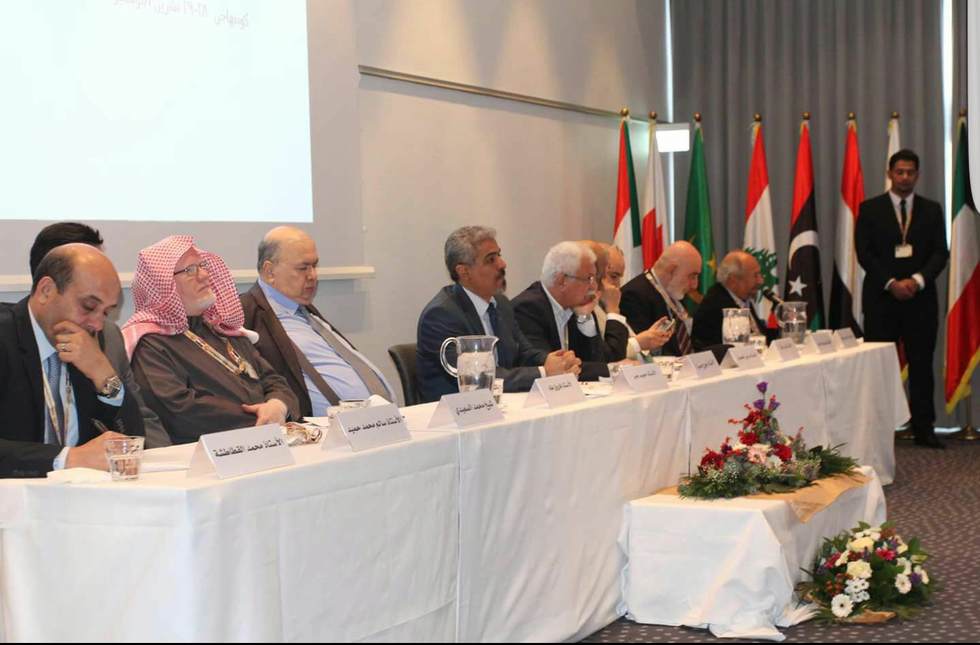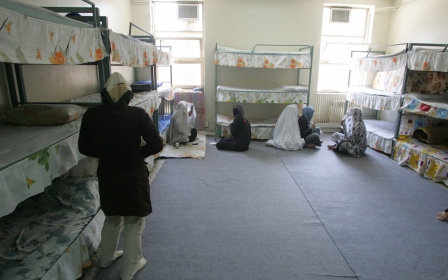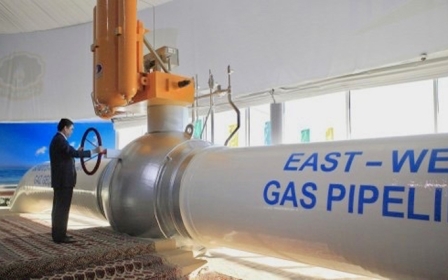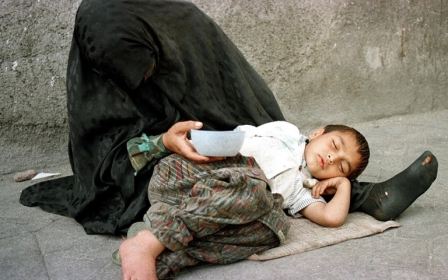Arab separatists claim oil pipeline bombing in Iran

The Arab Struggle Movement of Al-Ahwaz (ASMLA), an armed Arab separatist movement in Iran, said it bombed two major oil pipelines in the western Khuzestan region on Tuesday.
Carried out by Martyr Muhyiddin Al Nassr Brigade, ASMLA's military wing, the first attack hit a pipeline in Iran's “Maroun” oil field in Omidiyeh, east of Ahwaz, according to the group. Al Nassr Brigade planted explosives on a pipeline owned by the state-owned Aghajari oil company, which produces an estimated 440,000 barrels of crude oil per day.
Their second attack targeted the “Bohrcan” field, which produces a reported 60,000 barrels of crude oil per day, but production has been brought to an abrupt halt since the bombing.
Motives behind the surprise attack were unveiled in a statement published by Al Nassr Brigade online on Wednesday. The organisation criticised Iran for its unrestrained military involvement across Arab states in Syria, Iraq, Lebanon, Bahrain and Yemen.
"The present circumstances across the Arab region as a result of Persian occupation has made the death, inquires and displacement of millions possible," it read.
The armed group appealed to the GCC to pledge full support to the people of Ahwaz in their resistance against what it called an "Iranian occupation of Arab lands".
International oil companies were also warned not to pursue future deals and investments with Iran in Ahwazi territory, according to the statement.
The Brigade went on to say that it plans to continue conducting attacks unless Iran makes concessions to its non-Persian populations.
However, Iranian government officials have delivered statements saying that ASMLA’s involvement is untrue. On Wednesday, Interior Ministry spokesman Salman Samani denied that any explosions had been detonated, and dismissed western media reports as "wholly devoid of truth", according to Iranian Labour news agency (INLA).
Marginalised community
Ahwaz is a predominately Arab territory in Iran that encompasses Khuzestan, Bushehr and Hormozgan in southwestern Iran. Ahwazis have long called on the international community for protection from a government they claim denies them political representation and infringes on their freedom.
A report published by Minority Voices last year places the rate of unemployment there at 40 percent. High unemployment rates, coupled with poverty and repression are a primary cause why "Al Ahwaz has the highest suicide rate in Iran", according to the report. Around 50 percent of Ahwaz’s child population are malnourished, the report added.
Although official government sources claim that the total population count of Arabs in Iran is 3 or 4 percent of the country's 70 million people, these numbers are hotly contested.
"The government attempts to deflate its numbers, but we believe that Arabs in the city of Ahwaz alone surpasses the 3 million mark," Kamil Alboshoka, an Ahwazi activist in London, told Middle East Eye.
"The Iranian regime's crimes against Ahwazis are well-documented. The right to receive education in our native language is prohibited, alongside the right of free speech, assembly or movement, and we, Ahwazis, have commonly been imprisoned without charge or trial. My paternal cousin died as a result of torture, and will not be the first or the last one. Our intellectuals have also faced systematic liquidation. The government seeks either to kill them or displace them to deny Ahwaz of having its own educated class", he added.
"The Iranian regime's crimes against Ahwazis are well-documented" - Kamil Alboshoka, Ahwazi activist
The courtship between Ahwazis and Arab nations is neither new nor surprising, Alboshoka said. Cordial relations between the two "stretches as far back as the Iraqi monarchy [in the 1950s], which was the only establishment to have recognised the rights of this community".
"During the eight-year Iran-Iraq war, Ahwazis appealed to the former Iraqi president Saddam Hussein, in an effort at toppling Khomeini", he added.
Alboshoka gave no qualms on how he feels about the Iranian government. "Acts of state terror have cost me five family members, two of my cousins were sentenced to life in prison," he said.
ASMLA pledges more attacks
The Nassr Brigade has carried out other attacks prior to the purported oil pipeline bombings. Their fiercest strikes took place in 2005, before Iran’s parliamentary elections, when the Nassr Brigade targeted the government bank Saman, the country’s natural resource agency, and a state-run broadcast station.
In an interview with MEE Habib Jabr, ASMLA's secretary general, said the attacks were aimed at halting Iran's economy. The intended goal, he explained, is to "deny the Iranian enemy financial capital which it extracts from Ahwazi oil. The money they obtain is then used to fund the regime's military operations on Ahwazi soils, and abroad".
Jabr added that "the brigade will be expanding its operation in the coming year, targeting economic and military targets to weaken the occupier".
A media spokesman for the separatist group, Yaqoub Hur, criticised the government’s attempt to "deny the facts". He described this strategy as "further evidence of the fascist policies of the Tehran regime".
“Despite tireless efforts by the occupational regime to silence and suffocate the voice of our people, we can no longer remain quiet in the current age of social media, and they will be listening," Hur told MEE.
"Despite tireless efforts by the occupational regime to silence and suffocate the voice of our people, we can no longer remain quiet in the current age of social media" - Yaqoub Hur, ASMLA media spokesman
"We are currently witnessing a growth of nationalist consciousness in the face of this oppressor that can no longer disguise its crimes against the Ahwazis," he added.
Meanwhile, Ahwazi activists such as Alboshoka remain committed to highlighting their grievances against Iran.
"Our people, like other non-Persian minorities in Iran, are discriminated against and deprived of basic rights. We once had a country of our own which Britain made part of Iran. We will not forgo our rights to these lands, or our right to govern ourselves and lands independently, Alboshoka said.
Middle East Eye propose une couverture et une analyse indépendantes et incomparables du Moyen-Orient, de l’Afrique du Nord et d’autres régions du monde. Pour en savoir plus sur la reprise de ce contenu et les frais qui s’appliquent, veuillez remplir ce formulaire [en anglais]. Pour en savoir plus sur MEE, cliquez ici [en anglais].




